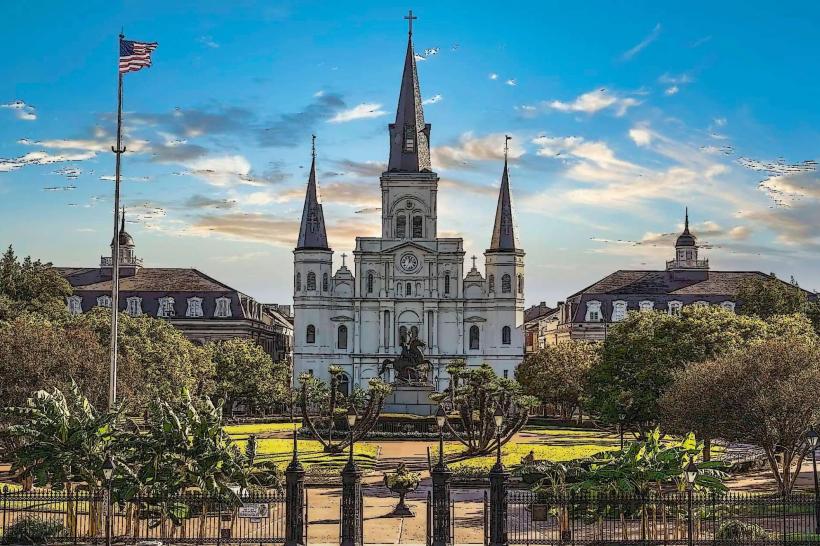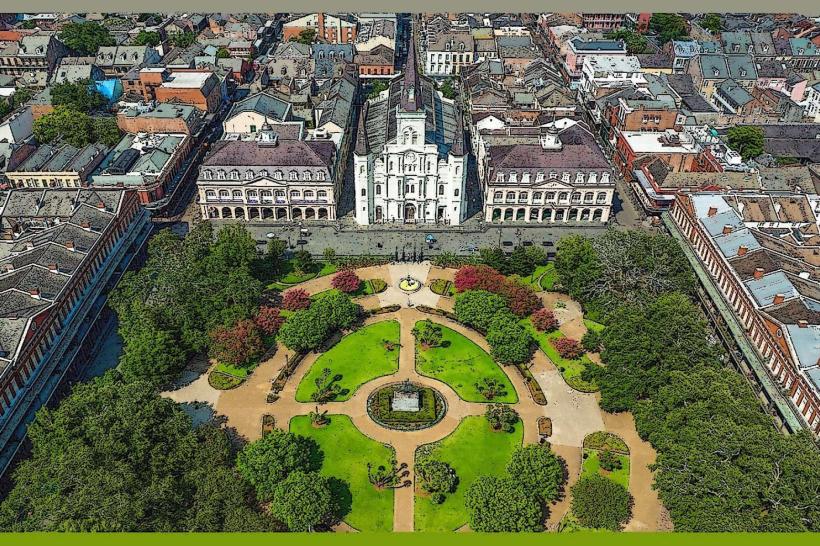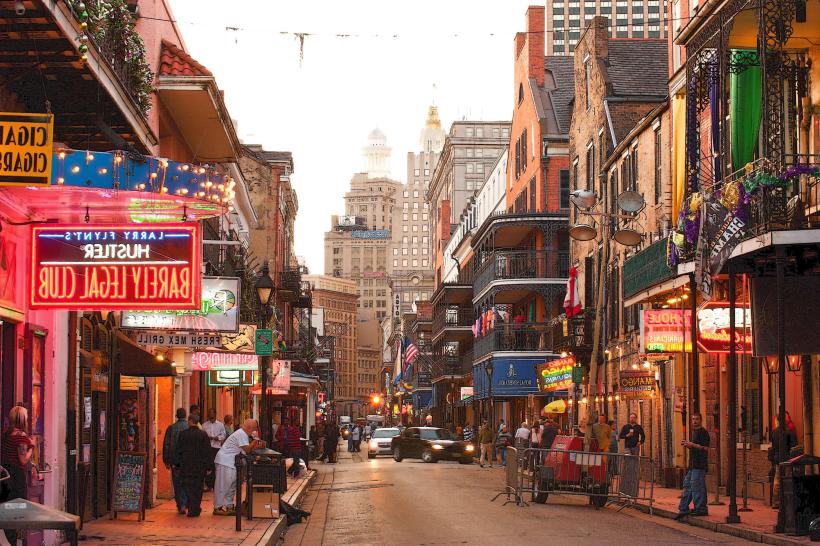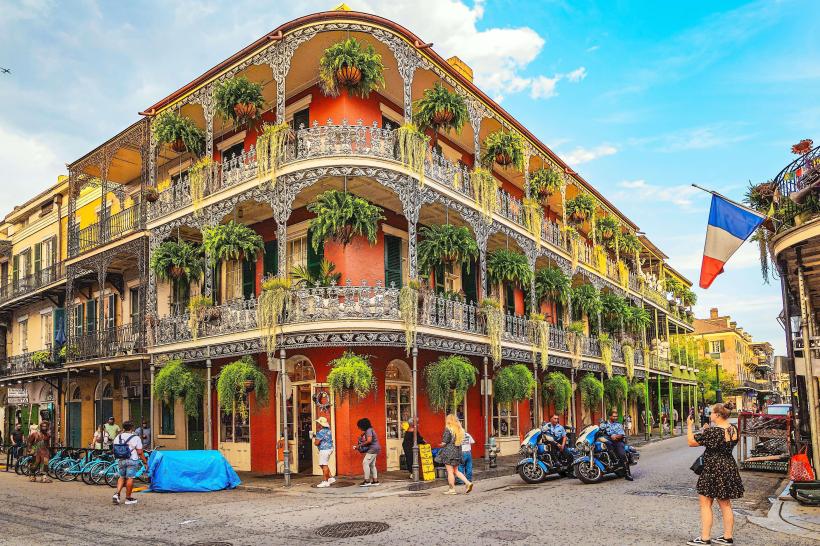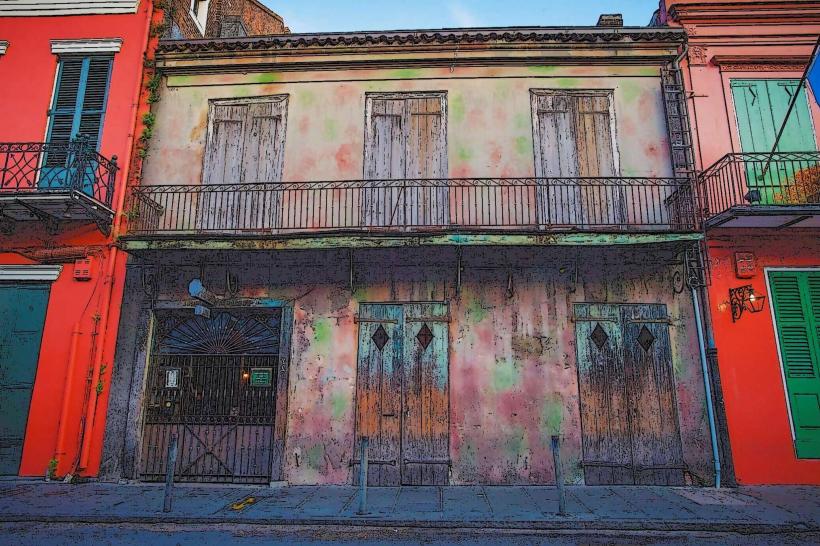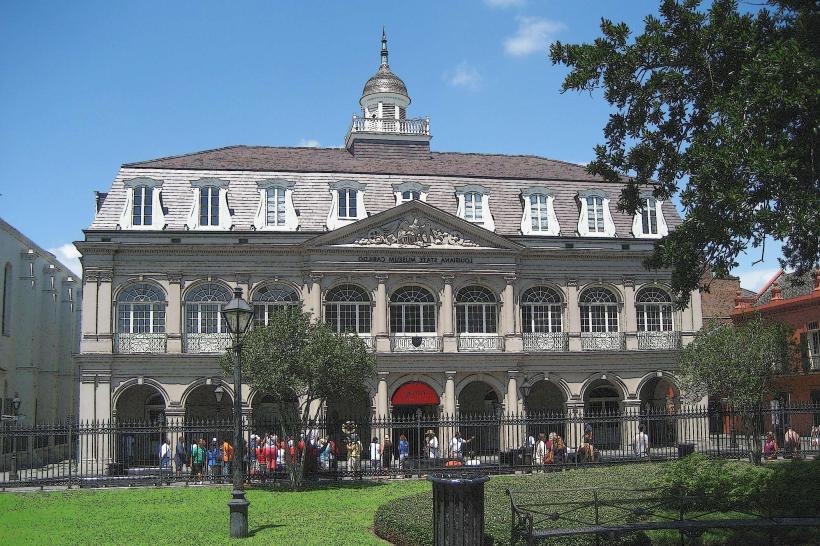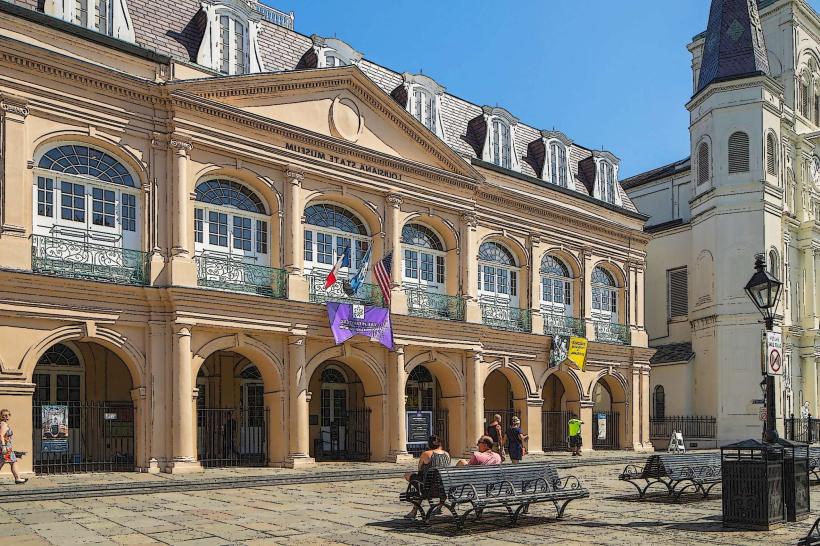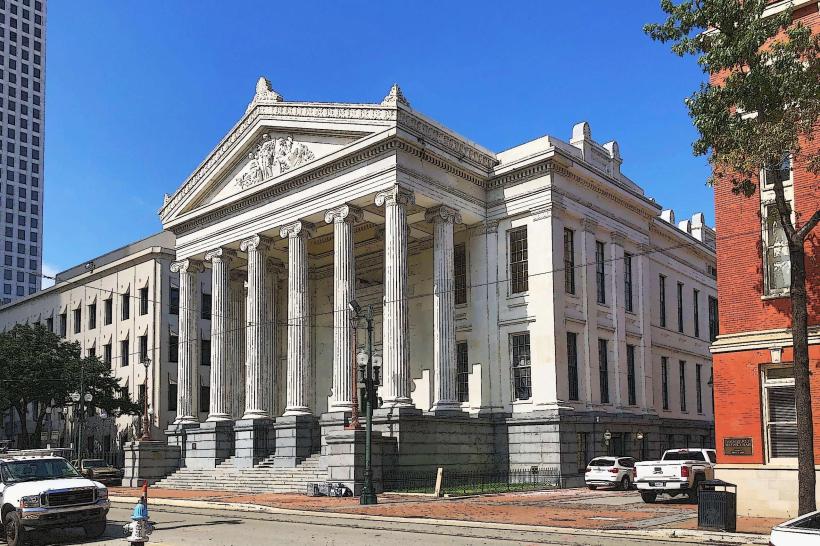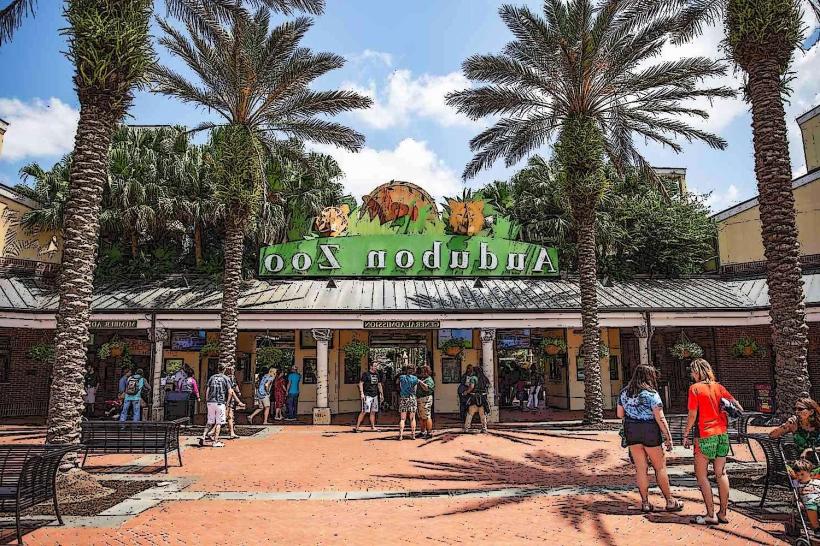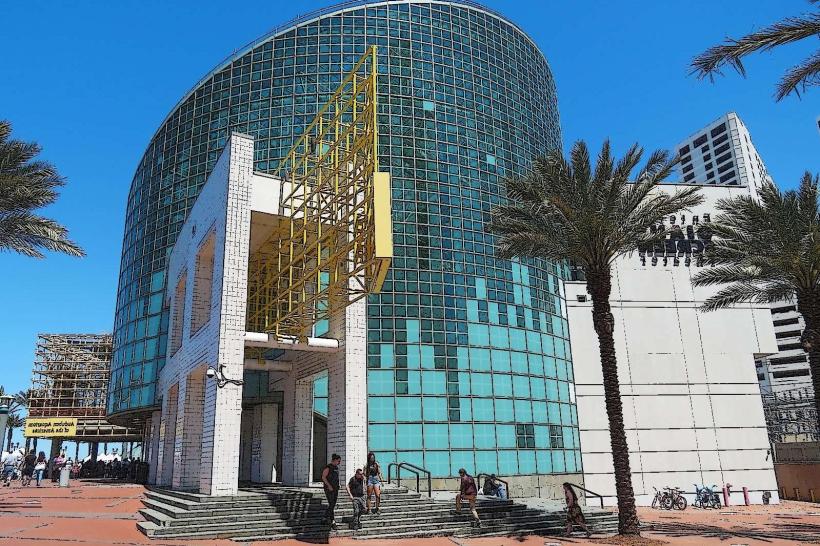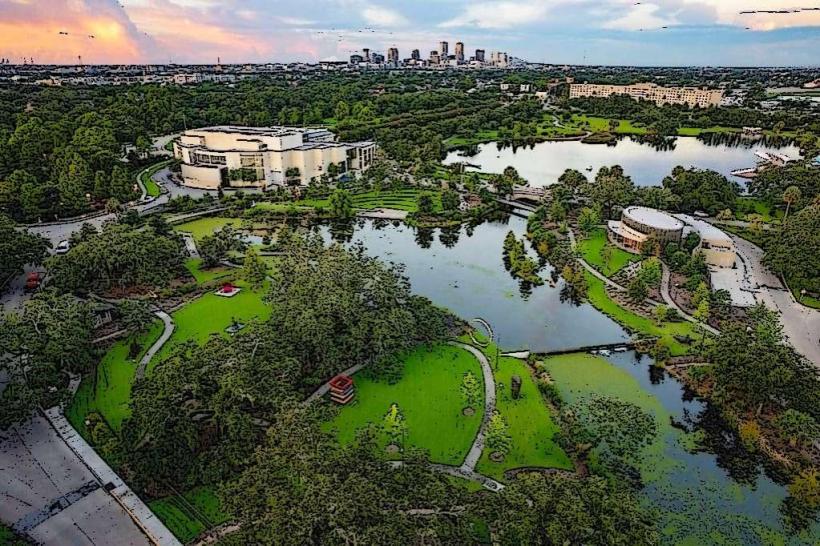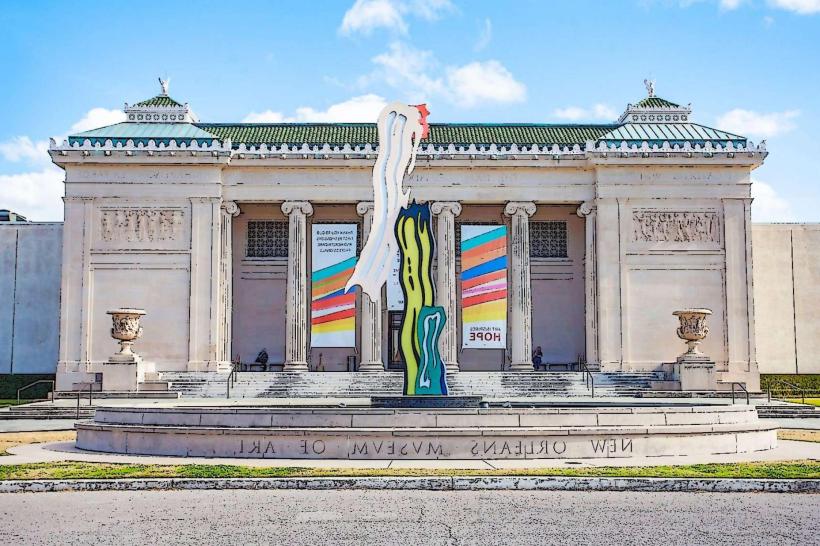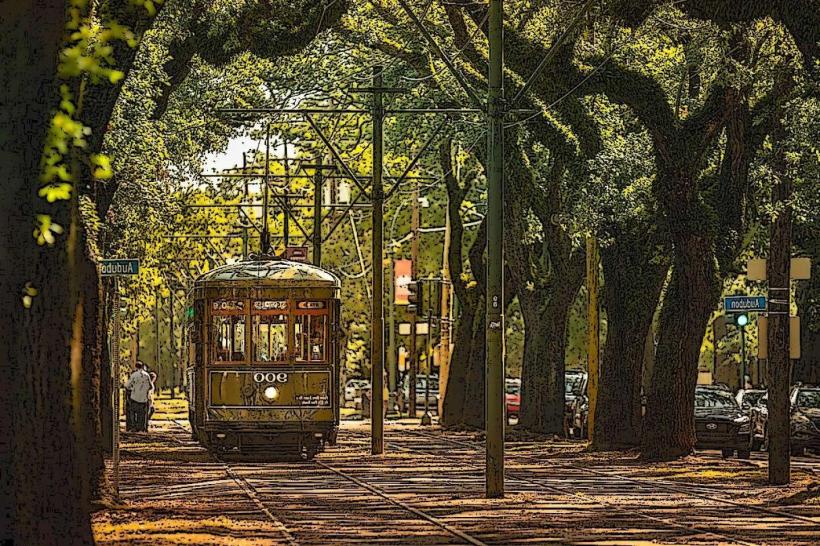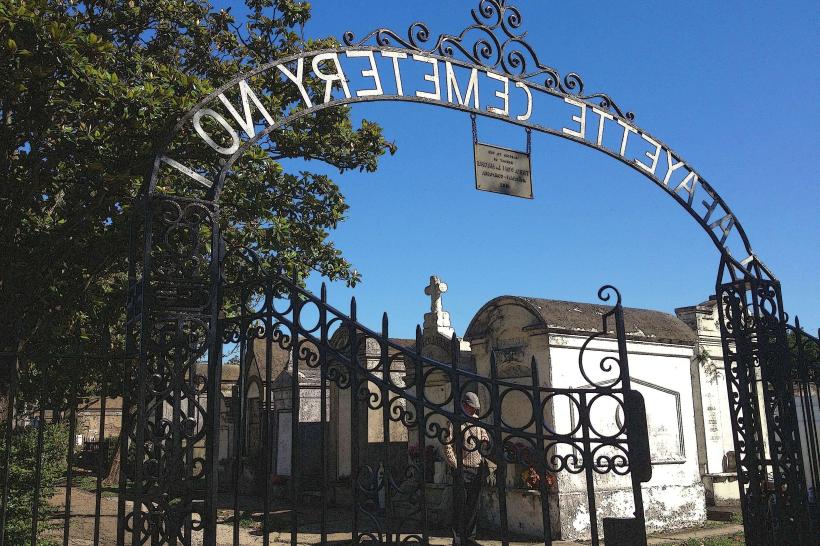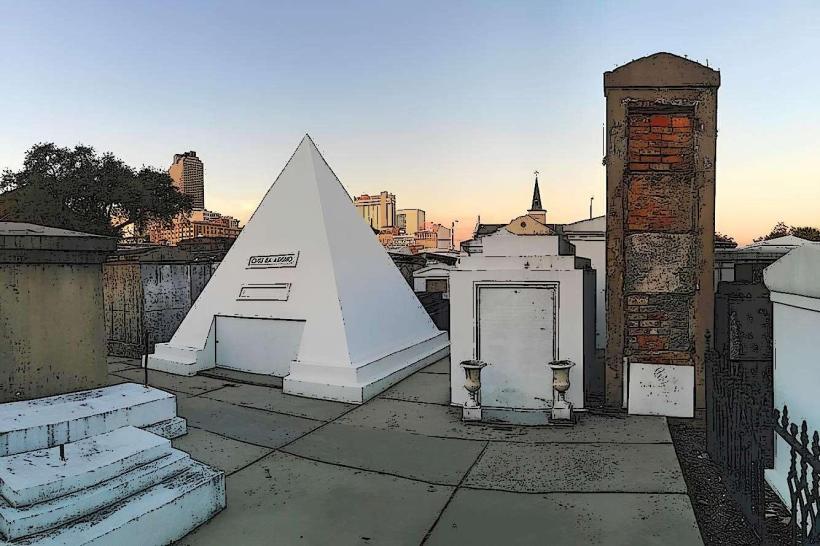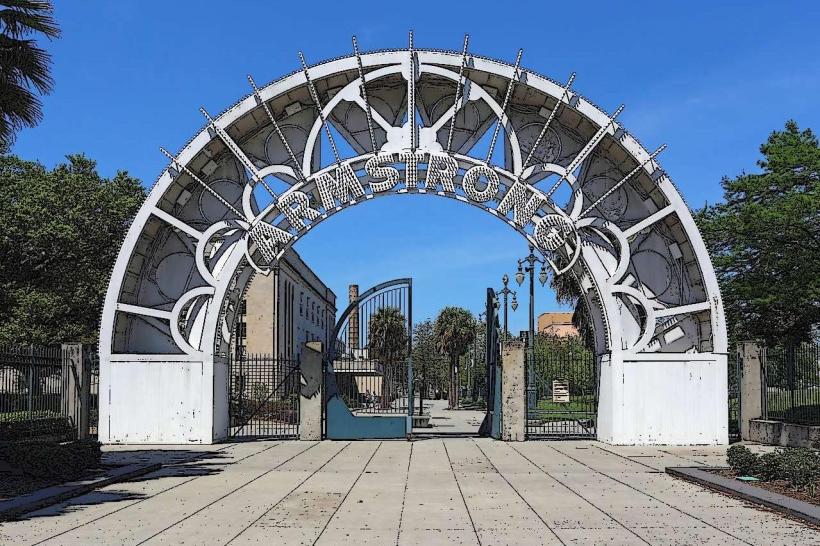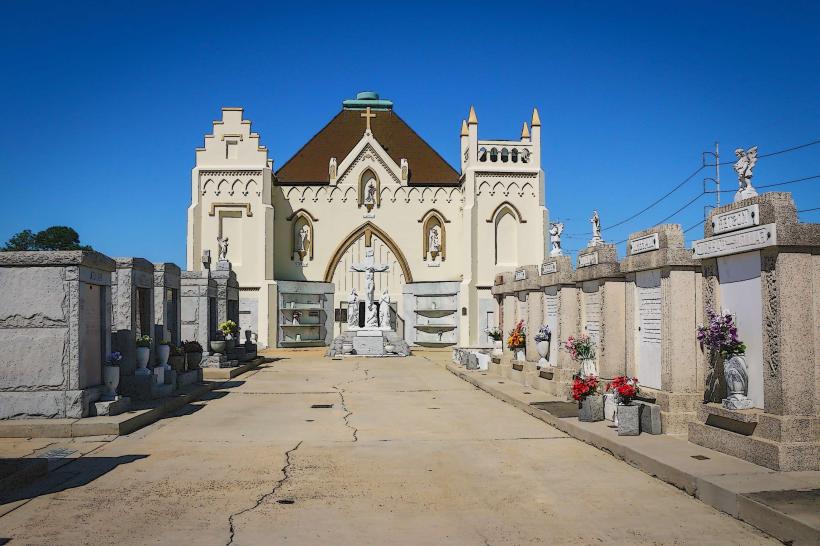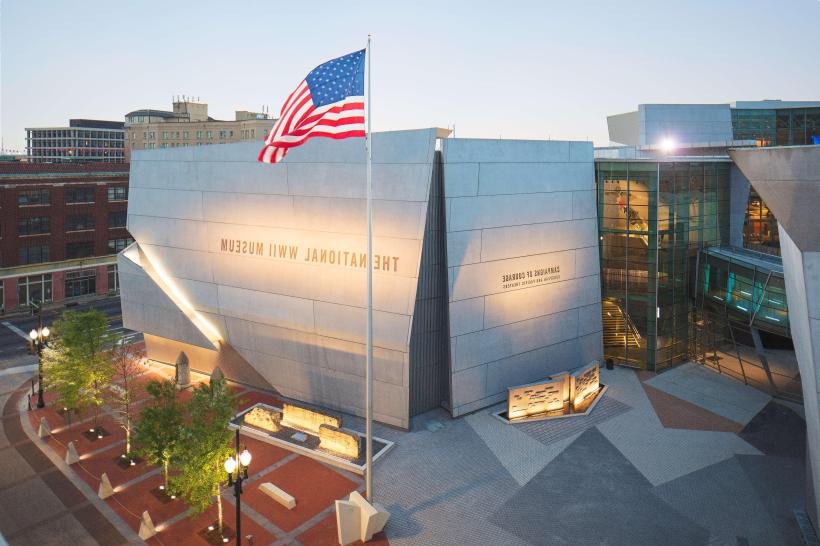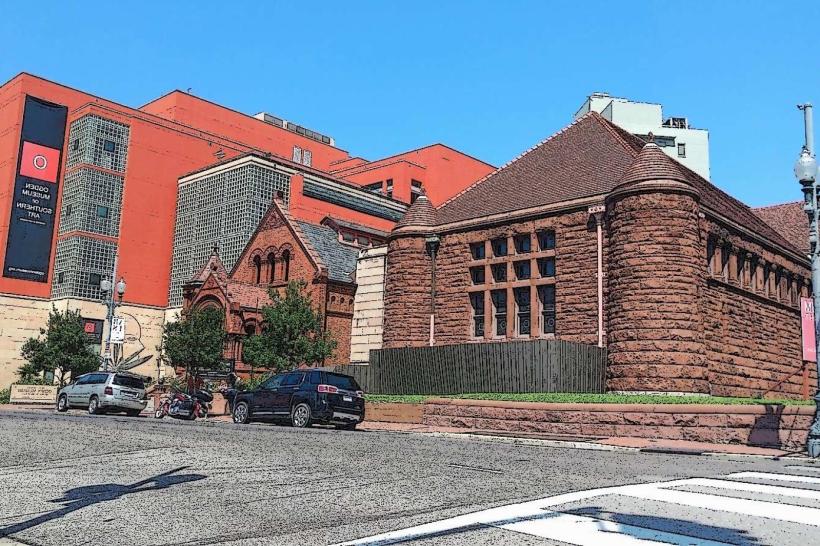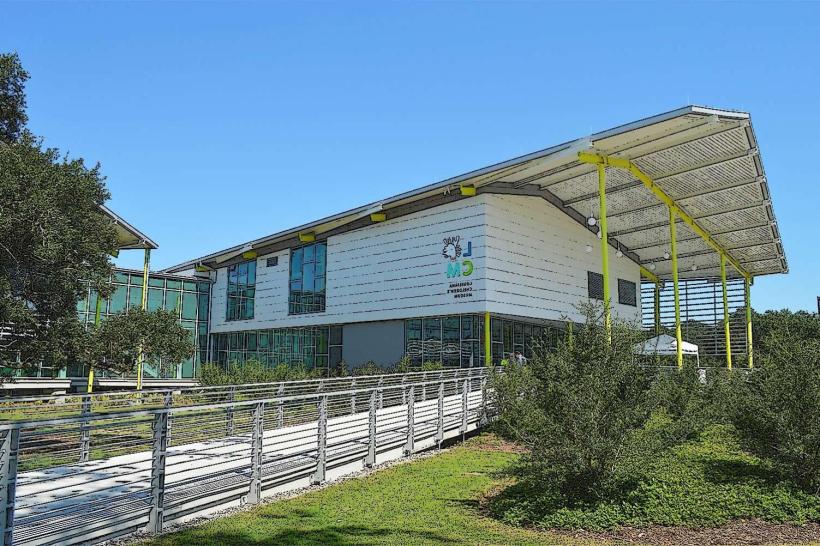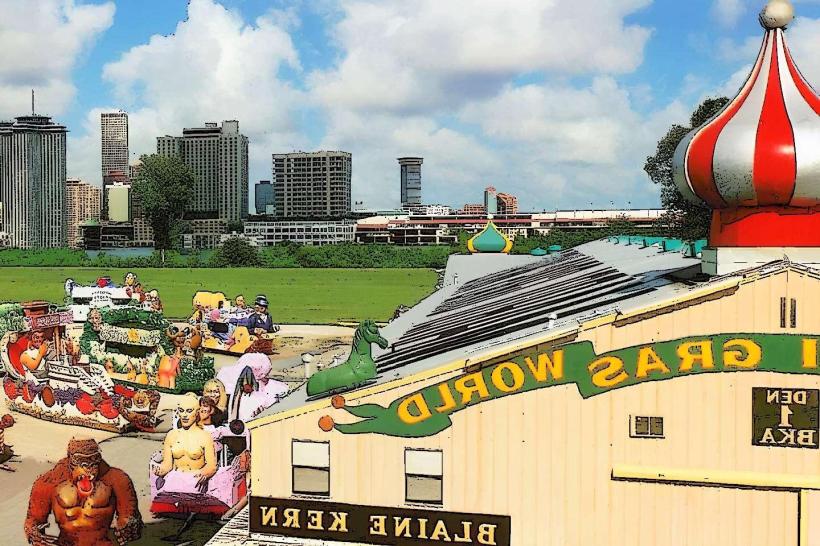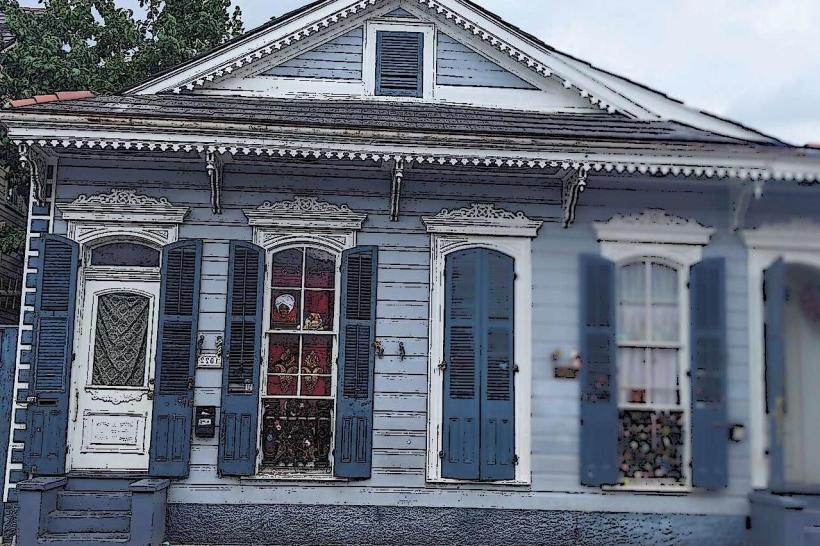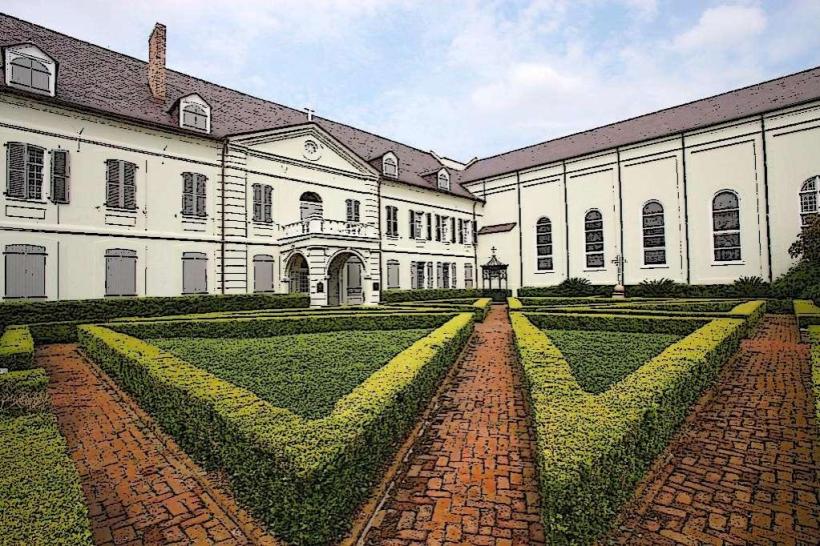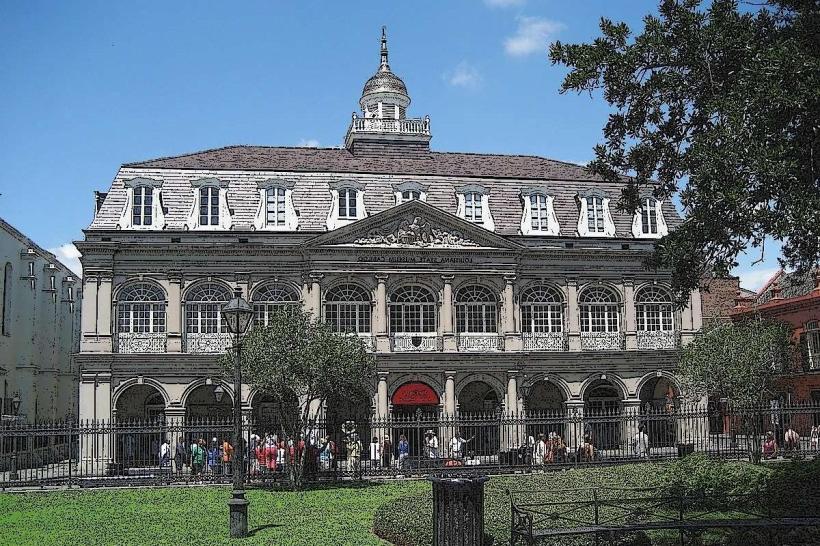Information
Landmark: Congo SquareCity: New Orleans
Country: USA Louisiana
Continent: North America
Congo Square, New Orleans, USA Louisiana, North America
Congo Square, located within Louis Armstrong Park in New Orleans, holds deep historical and cultural significance, particularly in the development of African American culture and music in the United States. The square is one of the most important landmarks in New Orleans and is often regarded as the birthplace of jazz.
Historical Context
Congo Square was originally a space where enslaved Africans, who were prohibited from gathering freely during the week, could meet on Sundays. From the late 18th century to the 19th century, it became a designated area for enslaved people to congregate, dance, sing, drum, and practice their cultural traditions. This practice was critical in maintaining African cultural expressions, especially music and dance, which were integral to the identity of the enslaved African population.
The square is particularly notable for the fusion of African rhythms, European melodies, and the sounds of the indigenous people of the area. The blending of these influences laid the foundation for the development of jazz, one of the most influential musical genres to emerge from New Orleans.
Significance in Music and Culture
The music played in Congo Square was rooted in African drumming traditions, but over time, it incorporated elements of European and Caribbean music, creating a unique musical blend. African drumming patterns, call-and-response singing, and improvisation became key features of New Orleans' musical identity, influencing jazz, blues, and other genres that would develop later.
Congo Square's role as a place of musical expression helped foster the early growth of jazz musicians. It was here that many of New Orleans' earliest jazz pioneers, such as Buddy Bolden, frequented to hear or play music. The square has long been celebrated as a birthplace of jazz because of this unique cultural convergence. The musical practices that began in Congo Square would eventually reach a wider audience, influencing the rise of jazz in the early 20th century.
Cultural and Political Legacy
While Congo Square's original purpose was centered on the celebration of African heritage, it also became a space for resistance and political expression. It was a place where enslaved people could momentarily experience freedom and assert their cultural identity through music, dance, and gathering.
The square also symbolized a space where the enslaved could momentarily escape the brutal constraints of their daily lives, a rare instance of autonomy in an otherwise oppressive environment. It has since become a symbol of the resilience of African culture and the impact that African Americans have had on the cultural landscape of New Orleans.
Modern Day Congo Square
Today, Congo Square remains a celebrated landmark and an important part of New Orleans’ history. It is still a venue for cultural events, live music performances, and festivals, with a focus on African American heritage and the musical legacy of the area. On Sundays, you can often see drum circles, traditional African dances, and performances that honor the square’s historical importance.
The square also features a plaque and a statue dedicated to the legacy of the enslaved people and the musicians who helped shape New Orleans' rich cultural tapestry. Visitors can learn about the role Congo Square played in the formation of jazz and African American cultural traditions through interpretive signage and guided tours.
Congo Square's preservation is a reminder of the complex and multifaceted history of New Orleans, where music, culture, and history intertwine in ways that are still celebrated today. It continues to be a space that honors the traditions of the past while fostering creative expression for future generations.

